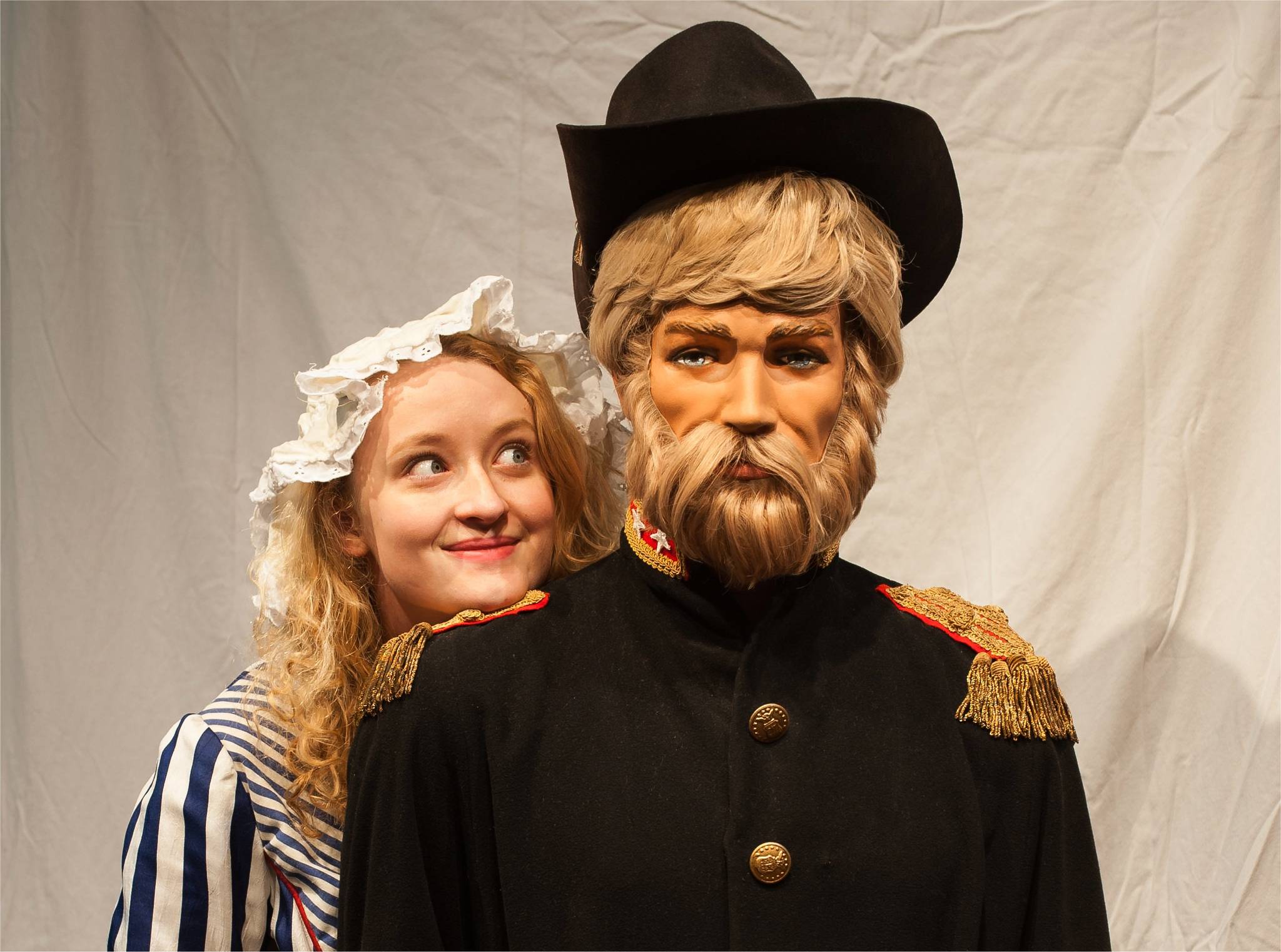The legacy left by Emelia “Lee” Bave lives on at the San Juan Historical Museum, where her Pig War memorabilia is housed.
“When I was researching for the play ‘Mrs. Bave Presents the Pig War’ everyone asked, ‘Is this play going to be disrespectful of Mrs. Bave?’ I assured them she is very much the heroine,” said playwright Steve Lyons. The show is produced by Bellingham Theater Works, a theater troop located in Bellingham formed by Lyons and Mark Kunz, and coming to the San Juan Community Theatre Oct. 7, at 7:30 p.m. Tickets are $19, or student rush, at the door only, for $5. Contact the theater’s box office at 378-3210 or visit sjctheatre.org to purchase tickets online.
“I want the Bave family to be proud of it [the play],” Lyons said, “if there was anything they didn’t like, I told them I would take it out.”
The result of the desire to portray Bave correctly, led Lyons to work closely with the family, especially her daughter Marsha, who according to Lyons told him that she believed he captured her mother’s spirit. Marsha, as well as Raena Parsons from the National Historical Park, will be available for a discussion after the production.
Lyons was inspired to write the show after the story of Bave’s Pig War play, “San Juan Saga.” The script was so terrible that after one performance, all the actors quit. She was unable to find any replacements. Not to be dissuaded, Bave used mannequins instead, and for 20 years, she performed the play where the gift store to the Whale Museum is now located. Bave narrated the story by loudspeakers, and the mannequins were placed on revolving panels that she moved as she narrated.
“She was constantly running around orchestrating the disaster of a play, but she was happy as a lark with this sparkle in her eye,” Lyons said, explaining that he saw a video of her production during his research. She was an absolute delight, and made the price of admission worth it, he said. That video will be shown during the production as well.
In Lyons story, the mannequins come to life and threaten to quit as well, unless Bave rewrites the script to tell the true story of the Pig War, which she agrees to do. The original script for “San Juan Saga,” according to Lyon, can still be bought at used bookstores.
The issue with the script Lyons said was that it did not flow, but meandered off the Pig War topic frequently. The Pig War occurred as tensions mounted over ambiguous British and American boundary lines. When an American potato farmer shot a pig that he found eating his crops, those tensions boiled over causing American troops and British troops to camp out on San Juan Island for approximately 11 years, until the boundary dispute was peacefully resolved.
“The British had five warships, while the Americans only had about 50 or 60 soldiers on land. The British could have obliterated the U.S., and they knew it,” Lyons said. “Yet, they chose not to do it. The restraint shown was inspirational.”
Lyons also said he is fascinated by the Pig War because there are aspects of it that remind him of events happening today.
“The press on both sides at that time were and driven by nationalism,” said Lyons, noting that nationalism has raised its head again, currently, and that like today, the media was very hot-headed.
“Bave found the story of the Pig war to be inspirational, and I believe she was motivated by that. She felt like others should know about this amazing story,” Lyons said.
For more information about the “Mrs. Bave Presents the Pig War,” visit sjctheatre.org.




